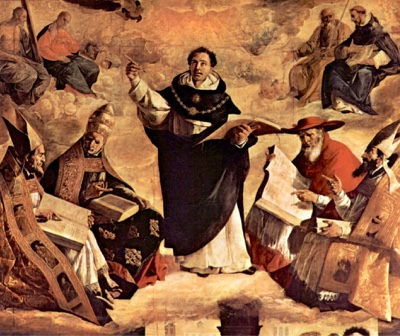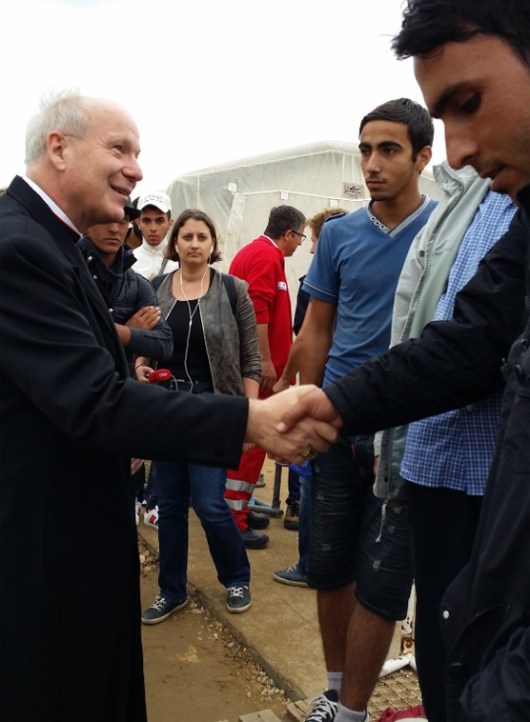
1873 words, 9 min read
On Friday morning, Pope Francis gave an interview to the Italian daily, L’Avvenire, in which he spoke at length about the Year of Mercy that concluded yesterday, about Christian unity and where he also addressed criticisms leveled at his last apostolic exhortation, Amoris Lætitia. Even though he does not name his critics, a letter published this week by four cardinals, who express “doubts” and ask for “clarification”, must have also been on Francis’ mind. What follows is my translation of parts of the interview, where I attempted to stay as close to the way Francis expresses himself in Italian, even at the expense of some of the phrases not sounding natively English (since they are not :).
Francis starts by speaking about what the Year of Mercy has meant for him:
“Those who discover that they are loved very much begin to exit a bad loneliness, a separation that brings one to hating others and oneself. I hope that many people have discovered that they are loved very much by Jesus and that they have let themselves be embraced by him. Mercy is the name of God and is also his weakness, his weak point. His mercy always leads him to forgiveness, to forgetting our sins. I like to think that the Almighty has bad memory. Once he forgives you, he forgets. Because he is happy to forgive. For me that is enough. Like with the adulterous woman of the Gospel, “whom He loved very much.” “Because He has loved very much.” The whole of Christianity is here.”
When Francis is then asked about whether his aims for the Year of Mercy had been achieved, his response shows a beautiful focus on discerning the will of God moment by moment:
“But I have not made a plan. I simply did what the Holy Spirit inspired me to do. Things just came along. I let myself be carried by the Spirit. It was only about being docile to the Holy Spirit, about letting Him act. The Church is the Gospel, it is the work of Jesus Christ. It is not journey of ideas, a tool for affirming them. And in the Church things come about when the time is ripe, when one offers oneself.”
In a response about the roots in the Year of Mercy being in the Second Vatican Council, Pope Francis then speaks about the nature of the Church:
“Experiencing in one’s own life the forgiveness that embraces the entire human family is the grace that the apostolic ministry announces. The Church exists only as a tool for communicating to people the merciful plan of God. At the Council the Church felt the responsibility of being in the world as a living sign of the love of the Father. With Lumen Gentium she ascended to the sources of her nature, to the Gospel. This moves the axis of the concept of Christianity from a certain legalism, which can be ideological, to the Person of God that has made itself mercy in the incarnation of the Son. Some – think of certain responses to Amoris Laetitia – continue to not understand, either white or black, even though it is in the flow of life that one ought to discern. The Council has told us this, historians, however, tell us that that a Council needs a century to become well absorbed by the body of the Church … We are halfway.”
Ecumenism was also addressed in the interview, where Francis first spoke about the continuity between his efforts and those of his predecessors and of the Council, before turing to his relationship with the heads of other Christian churches:
“I live it with a lot of brotherhood. Brotherhood can be felt. There is Jesus in the midst. To me they are all brothers. We bless one another, one brother blesses another. When with Patriarch Bartholomew and Hieronymus we went to Lesbos in Greece to meet the refugees we felt as one. We were one. One. When I went to see Patriarch Bartholomew at the Phanar in Istanbul for the feast of St Andrew, for me it was a great joy. In Georgia I met Patriarch Ilia who had not gone to Crete for the Orthodox Council. The spiritual harmony that I had with him was profound. I felt that I was in front of a saint, a man of God took my hand, told me beautiful things, more with gestures than with words. The patriarchs are monks. You see behind a conversation that they are men of prayer. Kirill is a man of prayer. Also the Coptic Patriarch Tawadros, whom I have met, took off his shoes as he entered the chapel and went to pray. The Patriarch Daniel of Romania a year ago gave me a book in Spanish by St. Sylvester of Mount Athos, I have already read about the life of this great holy monk in Buenos Aires: “To pray for humanity is to shed one’s own blood.” The Saints unite us inside the Church, making her mystery current. With our Orthodox brothers we on a journey, we are brothers, we love each other, we care together, they come to study here and with us. Bartholomew also studied here.”
When asked whether the Bishop of Rome shouldn’t focus on the Catholic Church full-time instead of spending time with the heads of other Churches, Francis proceeded to spell out first principles:
“Jesus himself prayed to the Father to ask that those who are his may be one, so that the world may believe. It is his prayer to the Father. Since always, the Bishop of Rome has been called to be a custodian of, to seek and to serve this unity. We also know that the wounds of our divisions are destroying the body of Christ, we cannot heal them by ourselves. So, it is not possible to impose plans or systems to become one again. To ask for unity among Christians we can only look to Jesus and ask that the Holy Spirit works among us. That it may be him to make unity. In the meeting in Lund with the Lutherans I have repeated the words of Jesus when he says to his disciples: “Without me you can do nothing.””
Another criticism leveled by some at Pope Francis’ ecumenical efforts is that he wants to “protestantize” the Catholic Church, to which his response is very simple:
“I don’t loose sleep over it. I continue on the road of those who have preceded me, I follow the Council. As for opinions, we must always distinguish the spirit in which they are said. When there isn’t a bad spirit, they also help on the journey. In other cases it can be seen straightaway that criticism are made here and there to justify a previously adopted position, they are not honest, they are made with a bad spirit to stir up division. It can be seen immediately that certain rigorisms stem from a lack, from a wanting to hide one’s sad dissatisfaction inside an armor. If you watch the movie Babette’s Feast, this rigid behavior can be seen there.”
Next, Francis is asked whether his focus on working together with other Churches for those who are in need isn’t a putting to one side of theological question and he again goes straight to the core:
“This is not a setting aside of something. Serving the poor means to serve Christ, because the poor are the flesh of Christ. And if we serve the poor together, it means that we Christians find ourselves united in touching the wounds of Christ. Here I think of the work that Caritas and Lutheran charitable organizations can do together after the meeting in Lund. It is not an institution, it is a journey. Certain ways of opposing the “things of doctrine” with the “things of pastoral charity” instead are not according to the Gospel and create confusion.”
In response to a question about what he meant when he spoke about unity being made while walking together, Francis said:
“Unit is not made because we agree among ourselves, but because we walk following Jesus. And while walking, by the working of the One we follow, we can discover ourselves united. It is the walking behind Jesus that unites. To convert ourselves means to let the Lord live and work in us. Like that we find ourselves united in our common mission of proclaiming the Gospel. Walking and working together, we realize that we are already united in the name of the Lord, and that, therefore, unity is not created by us. We realize that it is the Spirit who impels us and carries us ahead. If you are docile to the Spirit, it will be He who will tell you the step you can take, the rest is done by Him. It is not possible to walk behind Christ if you are not carried, if you do not pushed by Spirit with his strength. Because of this it is the Spirit who is the author of Christian unity. So, this is why I say that unity is made along a journey, because unity is a grace that you have to ask for, and also because I repeat that every proselytizing among Christians is sinful. The Church never grows by proselytizing but “by attraction,” as Benedict XVI wrote. Proselytism among Christians is therefore in itself a grave sin because it contradicts the very dynamics of how to become and remain Christian. The Church is not a football team that seeks fans.”
Speaking about the importance of baptism in response to a question about something that Francis said to Patriarch Kirill, he focuses on the importance of the incarnation as protection against ideologies:
“To rediscover our unity we don’t need to “go beyond” baptism. Having the same baptism means to confess together that the Word has made itself flesh: this saves us. All ideologies and theories are born of those who do not stop at this, who do not remain in the faith that recognizes Christ who has come in the flesh, and who want to “go beyond.” From there come all the positions that take the flesh away from the Church of Christ, which “de-flesh” the Church. If we look together at our shared baptism we are also freed from the temptation of Pelagianism, which wants to convince us that we are saved by our own strength, by our own activism. And staying at baptism also saves us from gnosis. This one distorts Christianity, reducing it to a path of knowledge, which can do without a real encounter with Christ.”
What strikes me most as I re-read Pope Francis’ words is his total focus on Jesus as the person whose presence among His followers is what unites them, what guides them and what is the basis of a discernment whose horizon is the present moment. This is a Christianity that is exciting, challenging and lived in direct relationship with God, who has made himself one of us to the point of also taking on our physical nature. Everything then follows from such a life – the Year of Mercy, ecumenism, dialogue, forgiveness and a pervasive sense of joy and openness.








